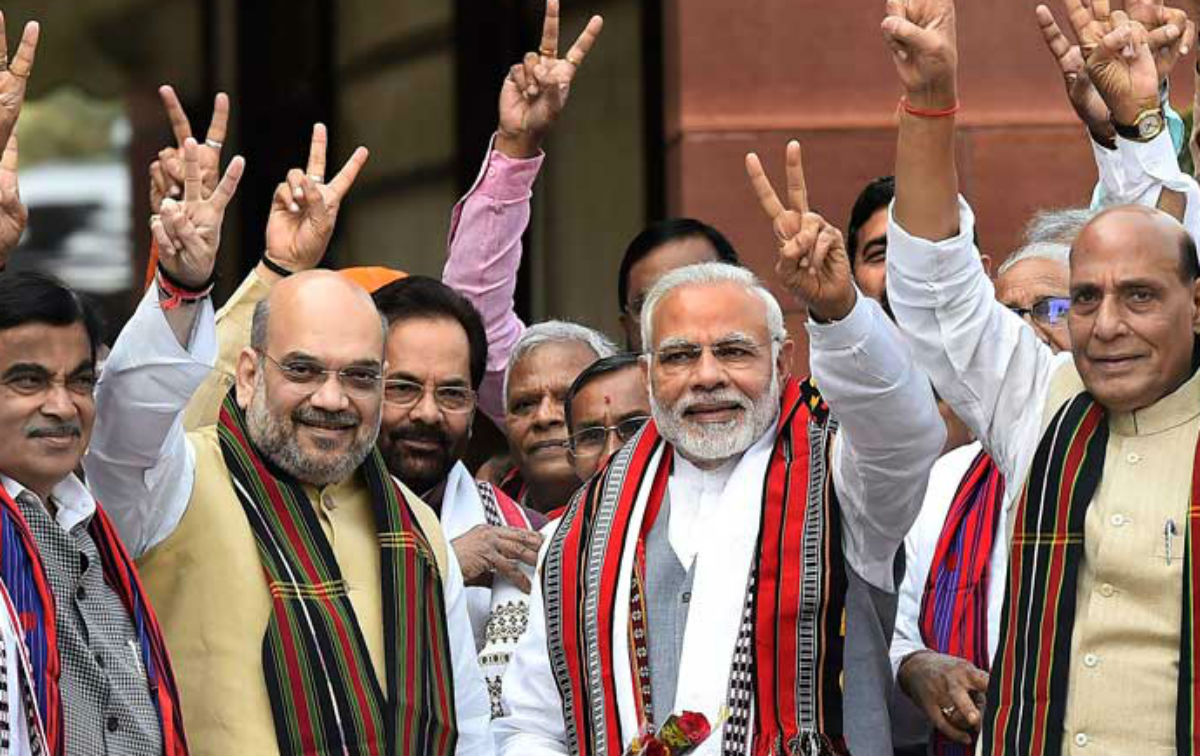If the above comes into force, in reality, half of the politicians will have to go home and their political career will end, but unfortunately, it will not happen. The election commission is doing their job by approaching the Supreme Court for pinning down the criminal candidates who enter the political arena with money and muscle power. The CE has demanded that no political parties should entertain the candidates with a criminal background.
According to the reports, the Chief Election Commissioner Mr. Sunil Arora told the media that they have approached the Supreme Court and that the CE will be pleading before the court to give direction asking the political parties not to give tickets to candidates with a criminal background. “Alone asking poll candidates to declare their criminal antecedents in the media has not helped curb criminalization of politics,” he said.
The apex court had given the direction to the candidates running for polls to submit their criminal history before the EC but that did not stop them from climbing the podium and winning the elections. There is a need for an alternate mechanism to remove the candidates with criminal backgrounds from politics.
A bench of Justices R F Nariman and S Ravindra Bhat asked the poll panel to come up with a framework within one week which can help curb criminalization of politics in the nation’s interest. It asked BJP leader and advocate-petitioner Ashwini Upadhyay and the EC to sit together and come up with suggestions that would help curb criminalization of politics.
“Given the situation and current composition of Parliament, we can assume that a law will not be passed to prohibit criminalization of politics and disqualify those charged with serious criminal offenses,” Singh said.

Although the SC and EC trying their best to eradicate the criminalization of the politics the near 50 percent candidates in the parliament with criminal records will not let this happen so easily.
“This should be done at the earliest in the public interest. This should not be treated as adversarial litigation. Both of you sit together and give a joint framework as what could be done to stop the criminalisation of politics,” the bench said.
The candidates with criminal backgrounds know how to play their cards and the earlier order of the Supreme Court did not tame the criminalized candidates from contesting and winning in the elections.
The EC neither published a list of leading newspapers-news channels for the purpose nor clarified the timing for declaration of criminal antecedents by candidates, it said. This led to the candidates publishing the required information in newspapers and news channels that were not very popular and at odd hours, it added.
In September 2018, a five-judge Constitution bench had unanimously held that all candidates will have to declare their criminal antecedents to the EC before contesting polls and called for wider publicity, through print and electronic media about antecedents of candidates.
The entry of criminals into politics only threaten the existence of the democracy in the country and thus SC left it to Parliament to “cure the malignancy” of criminalization of politics by making a law to ensure that persons facing serious criminal cases do not enter the political arena as the “polluted stream of politics” needs to be cleansed.
“If a candidate is contesting an election on the ticket of a particular party, he/she is required to inform the party about the criminal cases pending against him/her,” it had said, adding that “the concerned political party shall be obligated to put up on its website the aforesaid information pertaining to candidates having criminal antecedents”.
“If a candidate is contesting an election on the ticket of a particular party, he/she is required to inform the party about the criminal cases pending against him/her,” it had said, adding that “the concerned political party shall be obligated to put up on its website the aforesaid information pertaining to candidates having criminal antecedents”.














